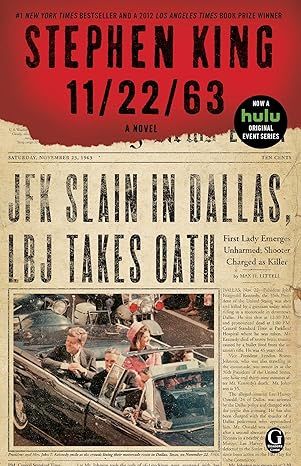11/22/63: A Novel
4.6
-
11,307 ratings
One of the Ten Best Books of The New York Times Book Review
Winner of the Los Angeles Times Book Prize
This enhanced ebook edition contains a 13-minute film, written and narrated by Stephen King and enhanced with historic footage from CBS News, that will take you back—as King’s novel does—to Kennedy era America.
On November 22, 1963, three shots rang out in Dallas, President Kennedy died, and the world changed. What if you could change it back? Stephen King’s heart-stoppingly dramatic new novel is about a man who travels back in time to prevent the JFK assassination—a thousand page tour de force.
Following his massively successful novel Under the Dome, King sweeps readers back in time to another moment—a real life moment—when everything went wrong: the JFK assassination. And he introduces readers to a character who has the power to change the course of history.
Jake Epping is a thirty-five-year-old high school English teacher in Lisbon Falls, Maine, who makes extra money teaching adults in the GED program. He receives an essay from one of the students—a gruesome, harrowing first person story about the night 50 years ago when Harry Dunning’s father came home and killed his mother, his sister, and his brother with a hammer. Harry escaped with a smashed leg, as evidenced by his crooked walk.
Not much later, Jake’s friend Al, who runs the local diner, divulges a secret: his storeroom is a portal to 1958. He enlists Jake on an insane—and insanely possible—mission to try to prevent the Kennedy assassination. So begins Jake’s new life as George Amberson and his new world of Elvis and JFK, of big American cars and sock hops, of a troubled loner named Lee Harvey Oswald and a beautiful high school librarian named Sadie Dunhill, who becomes the love of Jake’s life – a life that transgresses all the normal rules of time.
A tribute to a simpler era and a devastating exercise in escalating suspense, 11/22/63 is Stephen King at his epic best.
Read more
Kindle
$11.99
Available instantly
Audiobook
$0.00
with membership trial
Hardcover
$19.14
Paperback
$15.37
Ships from
Amazon.com
Payment
Secure transaction
ISBN-10
1451627297
ISBN-13
978-1451627299
Print length
866 pages
Language
English
Publisher
Scribner
Publication date
November 07, 2011
Dimensions
6 x 2.2 x 9 inches
Item weight
2.3 pounds
Product details
ASIN :
B004Q7CIFI
File size :
136 MB
Text-to-speech :
Enabled
Enhanced typesetting :
Enabled
X-Ray :
Enabled
Word wise :
Enabled
Editorial Reviews
Review
'Fine stories to take with us into the night.' -- Neil Gaiman on FULL DARK, NO STARS in the Guardian
'America's greatest living novelist.' -- Lee Child
'King's gift of storytelling is unrivalled. His ferocious imagination is unlimited.' -- George Pelecanos
'King's most purely entertaining novel in years ... utterly compelling.' -- John Connolly on UNDER THE DOME
'Staggeringly addictive.' -- USA Today on UNDER THE DOME
'Tight and energetic from start to finish.' -- New York Times on UNDER THE DOME
'The pedal is indeed to the metal.' -- Guardian on UNDER THE DOME
'Delivers a lot of praise and enjoy. The story comes off the blocks with almost alarming speed ... he tells a story like a pro ... 11.22.63 kept me up all night.' -- Daily Telegraph
'Stephen King at his epic, pedal-to-metal best' -- Alison Flood, Sunday Times, Culture
'Not just an accomplished time-travel yarn but an action-heavy meditation on chance, choice and fate.' -- Independent Books of the Year
'The details of Fifties America, the cars, the clothes, the food, the televisions with wonky horizontal hold, are so vivid that you begin to wonder whether the author himself hasn't had access to a time machine. ...But as you worry at the paradoxes and the brilliantly explained pseudo science there is no denying that this monster yearn is blindingly impressive. Manly writers run out of steam as they get older. King, though, writes books that are ever longer and more demanding. I can't wait to see what he will tackle next.' -- Daily Express
'Stephen King's new novel, 11.22.63, combines a variety of genres, being a JFK assassination, a story of time travel, a variation on the grail quest, a novel of voyeurism, a love story, a historical novel, a counter-factual historical novel and the chilling tale of a sinister animate universe, a form which can be traced back to the ghost stories of MR James.' -- London Review of Books
'The master of the pen has written yet another extraordinary novel.' -- Independent
'Perhaps only seasoned storyteller Stephen King could accomplish changing the course of history in his vast time-travelling masterpiece whilst effortlessly weaving political and social details with abundant humour. King's intriguing new story structure will surely catapult the author to another best-seller.' -- The Australian Women's Weekly
'These early sections of the novel are almost irresistible entertaining, enlivened not just by King's supreme control of the form but by his sardonic wit and usual generosity of spirit and expansiveness. Yet as Jack/George moves closer to his goal, other, darker notes intrude, as time itself begins to resist his attempts to change its course, and as he begins to identify with his quarry... Beneath the reassuring glow of King's portrait of an earlier, simpler time moves a darker and less comfortable vision, a glimpse of the terrifying machinery that moves below the surface of human history, and which stands as a stark, chilling rejoinder to the fantasies of escape embodied in so many time travel stories.' -- The Weekend Australia
'Mammoth but entertaining, this is part sci-fi, part suspense and part travelogue of a long-ago America.' -- Who Weekly
'Stephen King is a remarkable and wonderful storyteller who never loosens his grip on the reader throughout the 750-page book.' -- Woman's Day
'The novel is big, ambitious and haunting. King has probably absorbed the social, political, and popular culture of his baby-boom American generation as thoroughly and imaginatively as any other writer.' -- Mildura Midweek
'King weaves the social, political and popular culture of his baby-boom American generation into a devastating exercise in escalating suspense.' -- Daily Liberal
'A fascinating journey.' -- Armidale Express Extra
'A delightful blend of history and fantasy by a man who has always had a soft spot for an America where men wore fedoras, drove big Fords and could do the foxtrot. A thriller by a genius writer.' -- The Courier Mail
'People often complain there are no writers of the stature of Dickens anymore. I think that for pure energy and invention missed with compassion, King stands in that writer's direct line. Dickens' heir is alive and well and living in Maine.' -- Eureka Street
'This is Stephen King in top and chilling form.' -- Take 5
'You have to take a leap of faith with time-travel novels, but if there's one writer who can pull it off, it's Stephen King. ... Captivating, surprisingly pacy and free from sci-fi cliche, it's no wonder the film version is already being planned.' -- Shortlist
'The most remarkable story-teller in modern American literature.' -- Mark Lawson,The Guardian
'A powerful love story' -- Mirror
'One of the strengths of the book is King's at once nostalgic and honest view of the end of the Eisenhower era. King manages to avoid both sentimentalizing the past and treating it with massive condescension; his role as the poet of American brand-names serves him well here.' -- Independen
'King swiftly moves beyond vintage Americana to unfold a stunningly panoramic portrait of the era. His [King's] fascination with evil...arranges characters among clear mortal frontiers that fell meaningful rather than simplistic. King commands an inordinately fat space on the bookshelf with 11.22.63 but it's hard to begrudge when his vast imagination is working across such an epic canvas.' -- Seven, The Sunday Telegraph
'11.22.63 marks a definite maturing of literary command and ambition. The key to any novel set in an alternate reality is credible world building, the steady accumulation of detail - preferably lightly distributed - that brings the story alive. King succeeds in this, partly drawing from his own memories.' -- Adam LeBor FT Weekend
'...This is the American of Stephen King's childhood and it's one that he re-creates in vivid and loving detail... This is a truly compulsive, addictive novel not just about time-travel or the Kennedy assassination but about recent American history and its might-have-beens, about love, and about how life 'turns on a dime'. It's a thunking 700-pager which left me only wanting more. The master storyteller in truly masterful form.' -- Daily Mail
'Stephen King is up there with the best. It's a thriller, a meditation on late Fifties and early Sixties America and a love story. It creates a world you can lose yourself in.' -- Peter Robinson in the Sunday Express
'He writes incomparably good stories ... King's mastery of plot and his ability to create characters and situations both homespun and far-fetched means that this is the book you dream of getting stuck on the train home with.' -- Independent on Sunday
'The fictional offering that engaged me most urgently ... an extraordinarily ambitious tale.' -- Canberra City News
'A suspenseful drama.' -- New Idea (Australia
'Time travel and an incredible talent for storytelling combine to produce a unique tour de force.' -- Sun
'A book of the year.' -- Sun
'Cleverly evokes the moral dilemmas of time travel and whether a time traveller could or should prevent the assassination of John F. Kennedy on 11.22.63. King also beautifully and nostalgically evokes the minutiae of American suburban life in the late 1950's.' -- Canberra Times
'King's first effort at melding fact with fiction is as successful as his previous books, and perhaps even more intriguing considering the subject matter: time travel and the implications of change. A contemplative and thoughtful book as filled with heart as it is with intrigue, courtesy of one of our most gifted living writers.' -- Australian Penthouse
'Legendary writer King has written another magical tome.' -- People (Australia)
'The proof that King is an absolute master of the ambitious, imaginative novel shouts from every page.' -- Good Book Guide
About the Author
Stephen King is the author of more than sixty books, all of them worldwide bestsellers. His recent work includes the short story collection You Like It Darker, Holly (a New York Times Notable Book of 2023), Fairy Tale, Billy Summers, If It Bleeds, The Institute, Elevation, The Outsider, Sleeping Beauties (cowritten with his son Owen King), and the Bill Hodges trilogy: End of Watch, Finders Keepers, and Mr. Mercedes (an Edgar Award winner for Best Novel and a television series streaming on Peacock). His novel 11/22/63 was named a top ten book of 2011 by The New York Times Book Review and won the Los Angeles Times Book Prize for Mystery/Thriller. His epic works The Dark Tower, It, Pet Sematary, Doctor Sleep, and Firestarter are the basis for major motion pictures, with It now the highest-grossing horror film of all time. He is the recipient of the 2020 Audio Publishers Association Lifetime Achievement Award, the 2018 PEN America Literary Service Award, the 2014 National Medal of Arts, and the 2003 National Book Foundation Medal for Distinguished Contribution to American Letters. He lives in Bangor, Maine, with his wife, novelist Tabitha King.
Read more
Sample
8
On Monday, March 25, Lee came walking up Neely Street carrying a long package wrapped in brown paper. Peering through a tiny crack in the curtains, I could see the words REGISTERED and INSURED stamped on it in big red letters. For the first time I thought he seemed furtive and nervous, actually looking around at his exterior surroundings instead of at the spooky furniture deep in his head. I knew what was in the package: a 6.5mm Carcano rifle—also known as a Mannlicher-Carcano—complete with scope, purchased from Klein’s Sporting Goods in Chicago. Five minutes after he climbed the outside stairs to the second floor, the gun Lee would use to change history was in a closet above my head. Marina took the famous pictures of him holding it just outside my living room window six days later, but I didn’t see it. That was a Sunday, and I was in Jodie. As the tenth grew closer, those weekends with Sadie had become the most important, the dearest, things in my life.
9
I came awake with a jerk, hearing someone mutter “Still not too late” under his breath. I realized it was me and shut up.
Sadie murmured some thick protest and turned over in bed. The familiar squeak of the springs locked me in place and time: the Candlewood Bungalows, April 5, 1963. I fumbled my watch from the nightstand and peered at the luminous numbers. It was quarter past two in the morning, which meant it was actually the sixth of April.
Still not too late.
Not too late for what? To back off, to let well enough alone? Or bad enough, come to that? The idea of backing off was attractive, God knew. If I went ahead and things went wrong, this could be my last night with Sadie. Ever.
Even if you do have to kill him, you don’t have to do it right away.
True enough. Oswald was going to relocate to New Orleans for awhile after the attempt on the general’s life—another shitty apartment, one I’d already visited—but not for two weeks. That would give me plenty of time to stop his clock. But I sensed it would be a mistake to wait very long. I might find reasons to keep on waiting. The best one was beside me in this bed: long, lovely, and smoothly naked. Maybe she was just another trap laid by the obdurate past, but that didn’t matter, because I loved her. And I could envision a scenario—all too clearly—where I’d have to run after killing Oswald. Run where? Back to Maine, of course. Hoping I could stay ahead of the cops just long enough to get to the rabbit-hole and escape into a future where Sadie Dunhill would be . . . well . . . about eighty years old. If she were alive at all. Given her cigarette habit, that would be like rolling six the hard way.
I got up and went to the window. Only a few of the bungalows were occupied on this early-spring weekend. There was a mud- or manure-splattered pickup truck with a trailer full of what looked like farm implements behind it. An Indian motorcycle with a sidecar. A couple of station wagons. And a two-tone Plymouth Fury. The moon was sliding in and out of thin clouds and it wasn’t possible to make out the color of the car’s lower half by that stuttery light, but I was pretty sure I knew what it was, anyway.
I pulled on my pants, undershirt, and shoes. Then I slipped out of the cabin and walked across the courtyard. The chilly air bit at my bed-warm skin, but I barely felt it. Yes, the car was a Fury, and yes, it was white over red, but this one wasn’t from Maine or Arkansas; the plate was Oklahoma, and the decal in the rear window read GO, SOONERS. I peeked in and saw a scatter of textbooks. Some student, maybe headed south to visit his folks on spring break. Or a couple of horny teachers taking advantage of the Candlewood’s liberal guest policy.
Just another not-quite-on-key chime as the past harmonized with itself. I touched the trunk, as I had back in Lisbon Falls, then returned to the bungalow. Sadie had pushed the sheet down to her waist, and when I came in, the draft of cool air woke her up. She sat, holding the sheet over her breasts, then let it drop when she saw it was me.
“Can’t sleep, honey?”
“I had a bad dream and went out for some air.”
“What was it?”
I unbuttoned my jeans, kicked off my loafers. “Can’t remember.”
“Try. My mother always used to say if you tell your dreams, they won’t come true.”
I got into bed with her wearing nothing but my undershirt. “My mother used to say if you kiss your honey, they won’t come true.”
“Did she actually say that?”
“No.”
“Well,” she said thoughtfully, “it sounds possible. Let’s try it.”
We tried it.
One thing led to another.
10
Afterward, she lit a cigarette. I lay watching the smoke drift up and turn blue in the occasional moonlight coming through the half-drawn curtains. I’d never leave the curtains that way at Neely Street, I thought. At Neely Street, in my other life, I’m always alone but still careful to close them all the way. Except when I’m peeking, that is. Lurking.
Just then I didn’t like myself very much.
“George?”
I sighed. “That’s not my name.”
“I know.”
I looked at her. She inhaled deeply, enjoying her cigarette guiltlessly, as people do in the Land of Ago. “I don’t have any inside information, if that’s what you’re thinking. But it stands to reason. The rest of your past is made up, after all. And I’m glad. I don’t like George all that much. It’s kind of . . . what’s that word you use sometimes? . . . kind of dorky.”
“How does Jake suit you?”
“As in Jacob?”
“Yes.”
“I like it.” She turned to me. “In the Bible, Jacob wrestled an angel. And you’re wrestling, too. Aren’t you?”
“I suppose I am, but not with an angel.” Although Lee Oswald didn’t make much of a devil, either. I liked George de Mohren--schildt better for the devil role. In the Bible, Satan’s a tempter who makes the offer and then stands aside. I hoped de Mohrenschildt was like that.
Sadie snubbed her cigarette. Her voice was calm, but her eyes were dark. “Are you going to be hurt?”
“I don’t know.”
“Are you going away? Because if you have to go away, I’m not sure I can stand it. I would have died before I said it when I was there, but Reno was a nightmare. Losing you for good . . .” She shook her head slowly. “No, I’m not sure I could stand that.”
“I want to marry you,” I said.
“My God,” she said softly. “Just when I’m ready to say it’ll never happen, Jake-alias-George says right now.”
“Not right now, but if the next week goes the way I hope it does . . . will you?”
“Of course. But I do have to ask one teensy question.”
“Am I single? Legally single? Is that what you want to know?”
She nodded.
“I am,” I said.
She let out a comic sigh and grinned like a kid. Then she sobered. “Can I help you? Let me help you.”
The thought turned me cold, and she must have seen it. Her lower lip crept into her mouth. She bit down on it with her teeth. “That bad, then,” she said musingly.
“Let’s put it this way: I’m currently close to a big machine full of sharp teeth, and it’s running full speed. I won’t allow you next to me while I’m monkeying with it.”
“When is it?” she asked. “Your . . . I don’t know . . . your date with destiny?”
“Still to be determined.” I had a feeling that I’d said too much already, but since I’d come this far, I decided to go a little farther. “Something’s going to happen this Wednesday night. Something I have to witness. Then I’ll decide.”
“Is there no way I can help you?”
“I don’t think so, honey.”
“If it turns out I can—”
“Thanks,” I said. “I appreciate that. And you really will marry me?”
“Now that I know your name is Jake? Of course.”
Read more
About the authors
Stephen King
Stephen King is the author of more than fifty books, all of them worldwide bestsellers. His first crime thriller featuring Bill Hodges, MR MERCEDES, won the Edgar Award for best novel and was shortlisted for the CWA Gold Dagger Award. Both MR MERCEDES and END OF WATCH received the Goodreads Choice Award for the Best Mystery and Thriller of 2014 and 2016 respectively.
King co-wrote the bestselling novel Sleeping Beauties with his son Owen King, and many of King's books have been turned into celebrated films and television series including The Shawshank Redemption, Gerald's Game and It.
King was the recipient of America's prestigious 2014 National Medal of Arts and the 2003 National Book Foundation Medal for distinguished contribution to American Letters. In 2007 he also won the Grand Master Award from the Mystery Writers of America. He lives with his wife Tabitha King in Maine.
Read more
Reviews
Customer reviews
4.6 out of 5
11,307 global ratings
LauraLMHS
5
For sheer entertainment value - as well as food for thought - I give 11/22/63 five out of five stars.
Reviewed in the United States on March 5, 2013
Verified Purchase
I just finished reading Stephen King's 11/22/63, and I must say I thoroughly enjoyed it. At 800+ pages, I somewhat expected it to be a long laborious read. In fact, it was anything but. Certain reviewers have panned it for being overly long and containing far too much description, but I found it to be a light and airy read, albeit on a literally mind-boggling subject. I couldn't put this book down and I ended up finishing it in no time.
11/22/63 is a thoroughly entertaining novel about time travel and the basic premise is revealed early on in the narrative. The story begins in the present day with protagonist Jake Epping a thirty-something year old remedial English teacher. He befriends Al Templeton, who owns a diner and is dying of cancer. Al has a terrible secret to unload before he dies and he unloads it on Jake, but he exacts a promise from Jake in return. In the basement of Al's diner is a portal to the past, specifically 1958, and Al presses upon Jake the task of passing through this "rabbit-hole" and literally changing history by preventing the assassination of President John F. Kennedy. (The rationale is that if JFK lives to enter a second term in office, the Vietnam War would be nipped in the bud and never allowed to escalate under LBJ, thereby saving thousands upon thousands of American lives.) Of course, since the portal only enters into 1958, it will be necessary for Jake to live through five years worth of the past to bring him up to the time of the assassination. Jake, who has taken on the alias of George Amberson, spends much of these five years doing mundane things like teaching high school, forging friendships and, basically, living in the past, and part of the charm of the story is the description of life in the 1950s, a time of no cell phones, cheap gas, youthful innocence and trust among your fellow man.
There is an intriguing subplot where Jake/George in 1958 changes the fate of one of his 2011 elderly remedial students whose young family had been killed by their drunken father in a murderous rage. But by story's end when Jake contemplates if this was necesssarily a good thing, he has his doubts.
Along the way Jake/George meets his love interest, Sadie, and the description of their relationship constitutes the most poignant prose I've encountered in a Stephen King book. His love for her is so sincere that, even after a hideous injury, "If there is love, smallpox scars are as pretty as dimples." Sadie plays a major role in the final outcome of George's mission.
Apart from the love story, George spends his time stalking Lee Harvey Oswald to make absolutely certain that he and he alone was responsible for JFK's death. If not, then stopping Oswald may not have the intended effect. (He entered 1958 aware of the JFK assassination, but since even today that event is shrouded in mystery and conspiracy theories, Jake/George did not have the benefit of this definitive knowledge at his disposal.)
The creepy aspect of this book involves the interweaving into the narrative of real-life characters who in the story meet fates that are different from those with which we are all too familiar. There is a high "creepiness" quotient in the passages where George is observing or even speaking with Lee and Marina Oswald as well as John and Jackie Kennedy.
One of the more interesting and certainly thought-provoking themes of the book concerns the "Butterfly Effect," the notion that even the most minute of events can have unanticipated, seemingly unrelated - and sometimes earth-shaking - repurcussions far into the future. That fascinating notion is certainly food for thought. The book teaches us in chilling fashion that perhaps we should leave well enough alone and NOT tamper with fate. "Peek not through a keyhole, lest ye be vexed." Chilling. Life is fragile and it can turn on a dime. A sobering thought.
By story's end, when Jake climbs back through the rabbit hole into 2011, he is ruminating about the repurcussions and ramifications of his act. When one stops to think about the innumerable "strings" attached to one's actions, your imagination can cause you to spin off into infinite "what-ifs."
I have read many if not all of Stephen King's books. I have enjoyed most of them but some were simply too....bizarre....for my tastes. 11/22/63 proves Mr. King to be a master of the imaginative, asking you to suspend belief but without resorting to his usual bogeymen. This is a thinking (wo)man's novel.
I have found Mr. King's later works (e.g Bag of Bones, Duma Key) to show a maturity and sensitivity that were lacking in his earlier works, and 11/22/63 is no exception.
The ending of this story - involving an 80-year-old Sadie and a 30-year-old Jake - will touch your heart.
I won't give the conclusion away but rest assured your mind WILL be boggled, and if you - like me - love a book that really gives you something to ponder, you will not be disappointed.
Read more
3 people found this helpful
Brian B
5
Not a typical Stephen King book
Reviewed in the United States on June 25, 2024
Verified Purchase
This book is my favorite King book of all time, right behind The Stand. It hooked me from page one, and I could not put it down. I read all 800+ pages in less than a week and found myself being late to obligations because I couldn’t stop reading it; I had to know what was next. It is a complete novel, with history, nostalgia, horror, suspense, romance, and action. I had just finished It and I really liked the tie-in with Derry. I only wish the ending could have been different because it hit me in my feels 😭
Read more
4 people found this helpful
Henry Wagner
5
A mix of romance and edge of your seat thriller
Reviewed in the United States on February 6, 2013
Verified Purchase
SPOILER ALERT: DISCUSSES KEY PLOT POINTS
In The Dead Zone, Stephen King posed the familiar three o'clock in the morning question about what someone should do if given the opportunity to kill Hitler before he came to power. There, psychic Johnny Smith must decide whether he should assassinate senate candidate (and ersatz Hitler) Greg Stillson, thus changing the apocalyptic future he has foreseen. In 11/22/63, he poses a similar question, but this time gives his protagonist, Jake Epping, a man who exists in 2011 Maine, the chance to change the past. Jake, you see, has the opportunity to prevent Lee Harvey Oswald from assassinating President John F. Kennedy.
Time travel books are often the source of headaches. Very few are as well conceived as classics like Matheson's Bid Time Return (a.k.a. Somewhere in Time), Jack Finney's Time and Again, or Lewis Shiner's Glimpses. Then there are the inherent time anomalies involved, which many resent because they just get in the way of telling a good yarn. But, as with its predecessor, Under the Dome, 11/22/63 is a fine book, once you accept its premise.
And it's a doozy. Thirty five year old English teacher Epping is introduced to what might be classified as one of King's "thinnys," a break in the fabric of one reality which permits those who utilize them to enter another reality, in this case Lisbon Falls, Maine, as it existed on September 9, 1958, at 11:58 a.m. Al Templeton, the dying man who introduces Jake to this anomaly, has already done some research, discovering that actions taken after passing through that door do indeed affect the future. He also knows that everything resets to "normal" once one passes back through to modern day, and subsequently re-enters.
Jake's first experiment with altering time brings him to Derry, Maine, one of King's favorite locales (IT fans will be cheered to hear that Jake interacts with Richie Tozier and Beverly Marsh). He goes there to prevent the personal apocalypse of Harry Dunning, one of his GED prep students, who broke Epping's heart with a gut wrenching essay that centered on the tragic events of October 31, 1958, where, as a boy, Harry lost his entire family. It's on that night that Jake first learns some of the trickier ins and outs of time travel, unwritten rules which will have a profound effect on his existence in the world of 1958 to 1963. These rules, which Epping discusses in terms of "harmonics," "echoes," and through analogies to the famous "butterfly effect," all boil down to one basic tenet: history wants to follow a certain path, indeed actively strives to do so, so interfering in essentially preordained events can result in horrible consequences.
Despite this foretaste of disaster, Jake, now an experienced time traveler who thinks he can handle its pitfalls, decides to pursue the goal Al Templeton was unable to, namely preventing JFK's untimely demise. Traveling under the name of George Amberson (a nod to Booth Tarkington?), King does a wonderful job of describing a man out of time, evoking his wonder at the smells, tastes, and sensations of another time, touching on the advantages and disadvantages of each era. Jake establishes himself as a teacher in 1958 Maine, supplementing his income with strategic wagers on sporting events (later, this practice provides a grim example of the inflexibility of history).
Eventually, he moves to Texas to actively pursue his goal. He spends his time shadowing Lee Harvey Oswald, in order to assure himself that the assassin was in fact acting alone. He has to be careful, both not to influence events, or to reveal that he is a man living in another time. To complicate matters, he falls in love with Sadie Dunhill, the local librarian, who proves to be his soul mate. Although she's troubled by his strangeness and secrecy, Sadie returns his love.
King reveals the substantial research he (and pal Russ Dorr) have done on the era in general and the Kennedy assassination in particular as November 22, 1963 draws near, describing the day to day life of Lee and Marina Oswald, and spotlighting figures in their orbit, like geologist George de Mohrenschildt. The fated day arrives, and, the past proving to be "obdurate," tragedy ensues, but not of a nature you might expect. And, history having been changed, an alternate timeline springs into existence. Having the ability to hit the reset button by re-entering his native timeline, Jake has to decide whether he can live with the consequences of his actions. His decision, while considered, unselfish and mature, is heartbreaking.
11/22/63 is a big book, but one which is quickly and avidly consumed. It feels very personal to King--started before the publication of his breakout novel Carrie, it is in effect a time machine for the author, a link between his salad days and his later success. King takes his gift for creating relatable characters to new heights, providing the perfect tragic hero in Jake, and complementing him with a suitable mate, the indomitable Sadie. Even the smallest of supporting characters spring to vivid life, their very presence advancing an already compelling, textured tale. King writes with verve and pathos, effectively combining what is at its heart a (forgive this) timeless romance with an edge-of-your-seat thriller, as the countdown towards that fateful day in Dallas proceeds.
Read more
15 people found this helpful
Kimberly
5
One of the best books I've ever read
Reviewed in the United States on August 13, 2024
Verified Purchase
This book is amazing, Mr. King continues to hold his own as the true King. Great price too!
Jada Andre
5
Good Read!!!
Reviewed in the United States on September 20, 2024
Verified Purchase
Let me just say I read this book in about a week and 1/2. The book has a lot of historical facts in but not enough that’s its boring. I loved the romance part of Jake and Sadie.
Top Stephen King titles
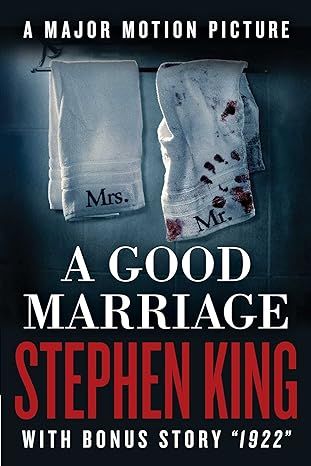
A Good Marriage
4.1
-
5,995
$4.99
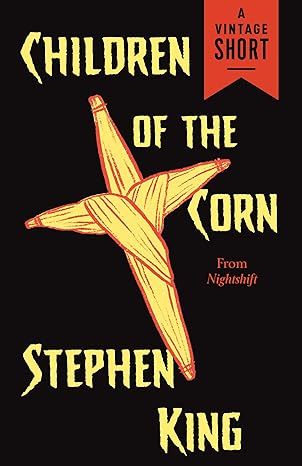
Children of the Corn (Kindle Single) (A Vintage Short)
4.3
-
1,084
$0.99
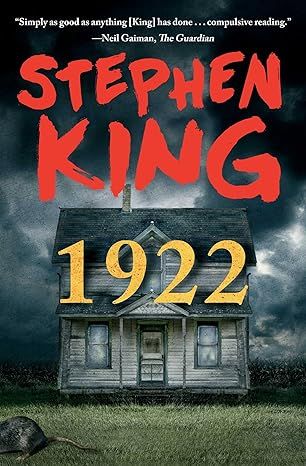
1922
4.6
-
6,082
$7.99
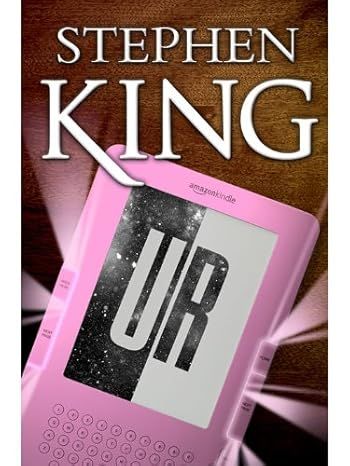
UR
4.3
-
6,140
$3.99
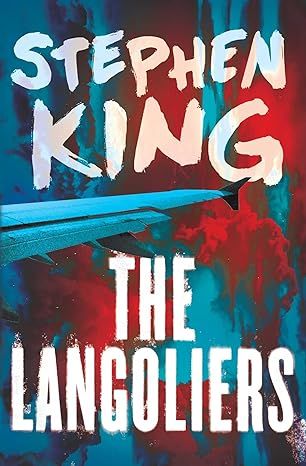
The Langoliers
4.6
-
1,014
$6.49
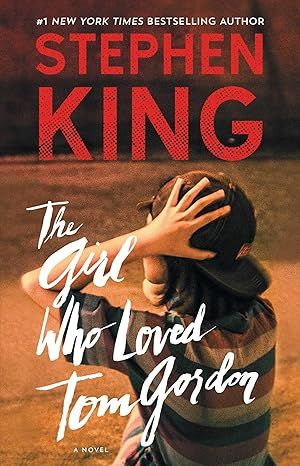
The Girl Who Loved Tom Gordon: A Novel
4.5
-
4,774
$1.17
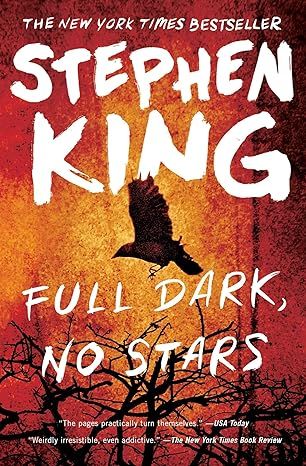
Full Dark, No Stars
4.6
-
6,762
$5.00

Gwendy's Button Box: A Novella (Gwendy's Button Box Trilogy Book 1)
4.5
-
21,335
$3.88
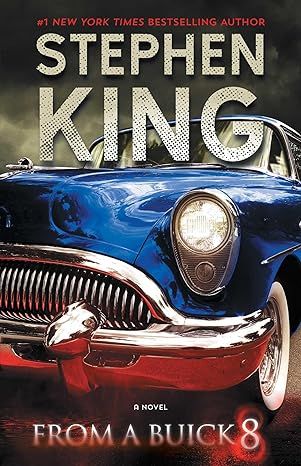
From a Buick 8: A Novel
4.3
-
2,174
$11.99
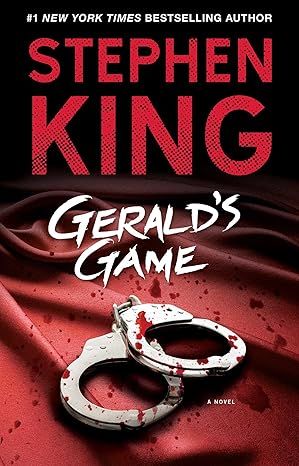
Gerald's Game
4.2
-
3,838
$1.97
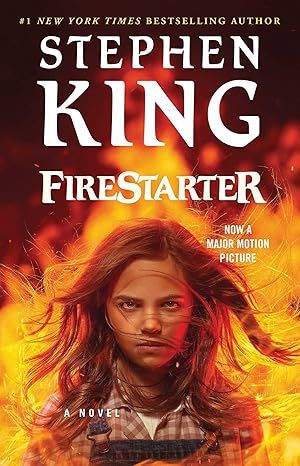
Firestarter
4.6
-
5,489
$9.99
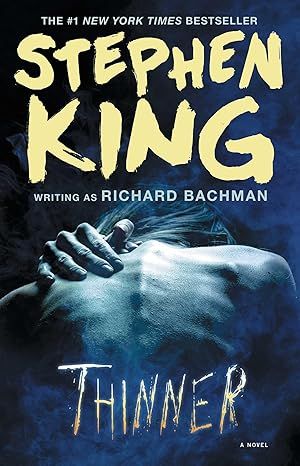
Thinner
4.5
-
3,107
$2.50
Best Sellers

The Tuscan Child
4.2
-
100,022
$8.39

The Thursday Murder Club: A Novel (A Thursday Murder Club Mystery)
4.3
-
155,575
$6.33

Sapiens: A Brief History of Humankind
4.6
-
140,302
$13.49

The Butterfly Garden (The Collector, 1)
4.3
-
88,556
$9.59

Things We Hide from the Light (Knockemout Series, 2)
4.4
-
94,890
$11.66

The Last Thing He Told Me: A Novel
4.3
-
154,085
$2.99

The Perfect Marriage: A Completely Gripping Psychological Suspense
4.3
-
143,196
$9.47

The Coworker
4.1
-
80,003
$13.48

First Lie Wins: A Novel (Random House Large Print)
4.3
-
54,062
$14.99

Mile High (Windy City Series Book 1)
4.4
-
59,745
$16.19

Layla
4.2
-
107,613
$8.99

The Locked Door
4.4
-
94,673
$8.53
